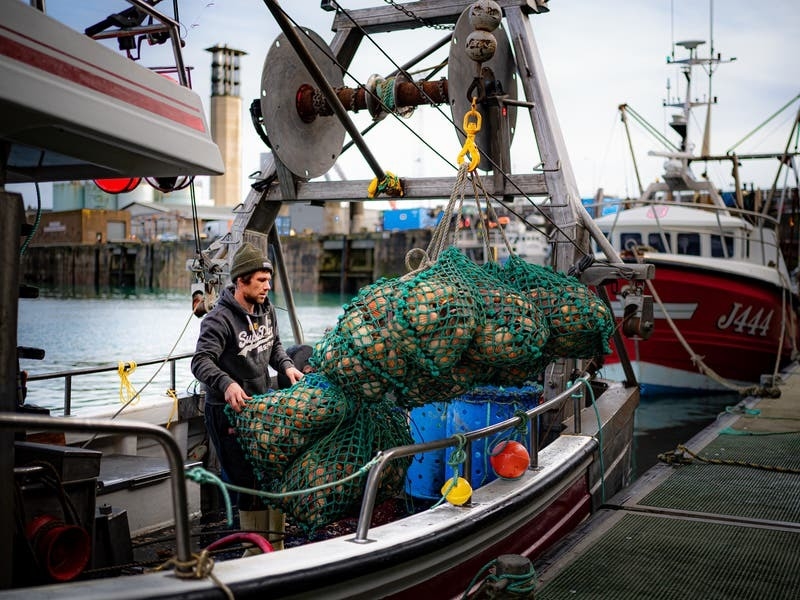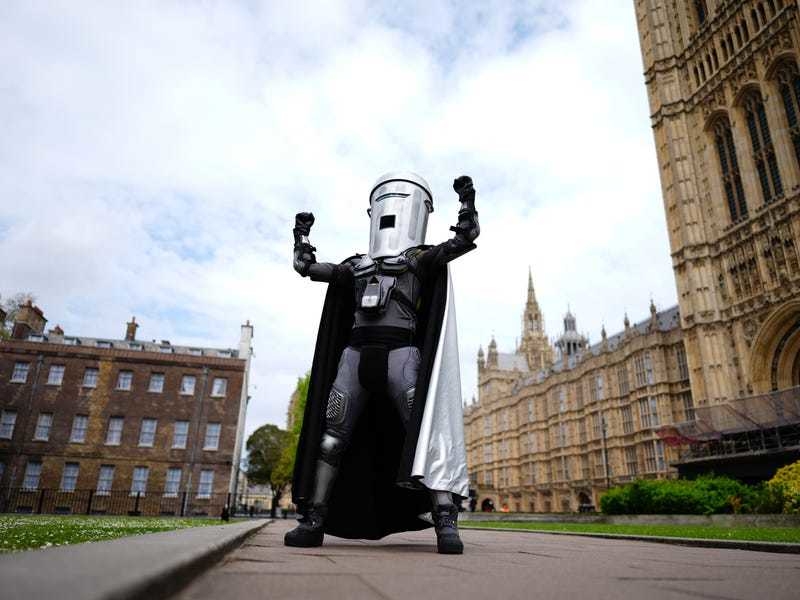Keith Beecham, chief executive of Visit Jersey – the body which has been tasked by the States to generate £500 million from tourists each year by 2030 – told the JEP that the cruise industry is ‘on our radar’.
Currently between 12 and 15 cruise ships visit Jersey annually.
- 3,208 visitors- total number of tourists from the UK (602 more than January 2014)
- 506 the total number of French tourists during the month
- 2.45 – the average number of nights stayed by visitors
- 49- the average age for adult visitors
- 34 – the percentage of first time visitors
- 85- the percentage of visitors travelling by air
But Ports of Jersey commercial director Myra Shacklady said that this figure could be increased ten-fold – attracting between 80 and 120 cruise ships annually – if a berth allowing large vessels to dock closer to Jersey was constructed.
At the moment she said operators were being put off from visiting Jersey as large ships have to anchor at the Demi des Pas off the south coast and transfer passengers to shore.
Guernsey attracts many more vessels as they can moor much closer to the Island.
The States of Guernsey estimates that the cruise industry added £4.8m to the island economy a year.
‘An alongside berthing is what the cruise companies want or if there is not that, sheltered anchorage which is not far away. Unfortunately we have neither.
‘We would like an alongside berth but that is extremely expensive. It would be in excess of £100m.’
But Mr Beecham said that the infrastructure challenges to attracting larger vessels were not ‘insurmountable’.
‘From a Visit Jersey perspective we would encourage thinking around all this,’ Mr Beecham added. ‘If you look globally at the cruise sector it is the fastest growing sector in the global tourism economy.
‘There is a significant cost but what we need to do in Jersey is weigh up the cost benefit.
‘It is a large capital investment but that capital investment would return visitors to the Island over many, many years. This sector of the tourism industry will continue to grow.’
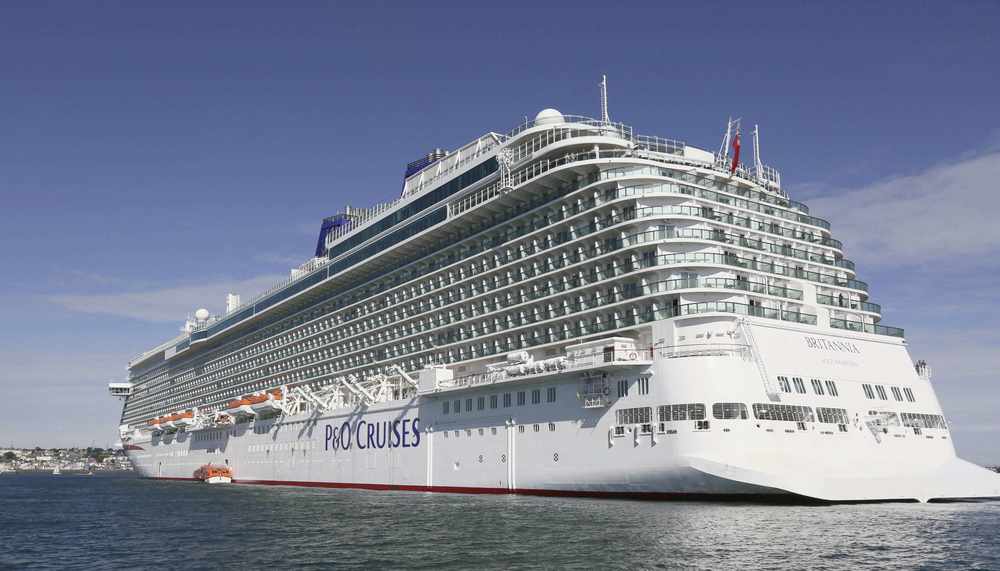
As well as money being spent in the Island Mr Beecham said that there could also be potential income from cruise ships buying produce from Jersey.
Visit Jersey is due to present its strategy on how it aims to boost tourism figures to Economic Development Minister Lyndon Farnham in July.
Mr Beecham said he was unable to say what his strategy would focus on as consultations were still underway but he added that as figures from the cruise industry ‘would not grow overnight’ this would not be the main sector Visit Jersey would concentrate on.
Senator Farnham said: ‘To facilitate some of the bigger cruise ships there would have to be some considerable investment. If we did build a cruise ship market I would like to see the visitors dispersed around the Island.
‘We don’t want 2,000 people to come ashore, walk around for two hours and spend nothing. We want them to visit our attractions, shops and restaurants.’
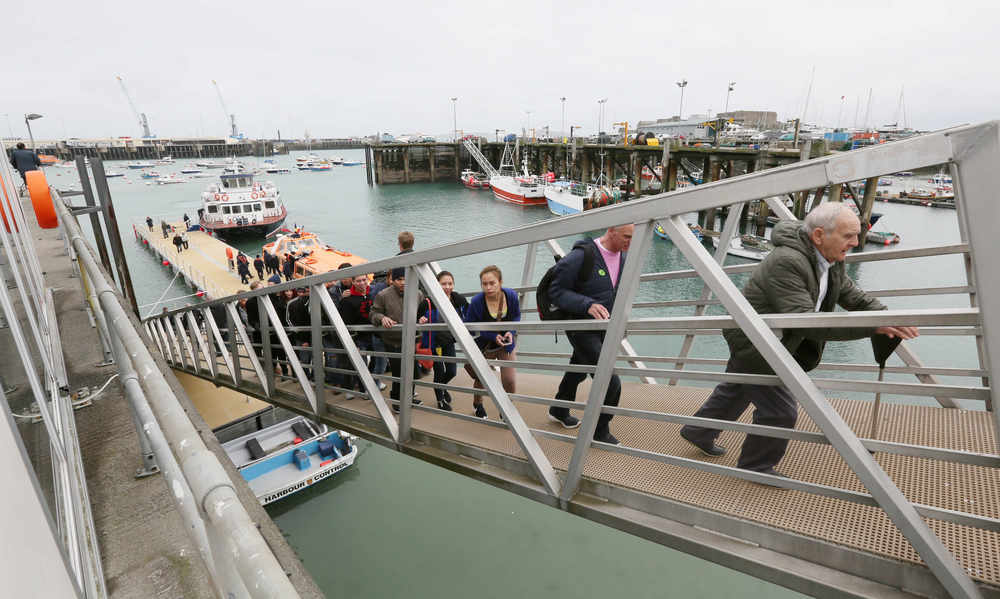
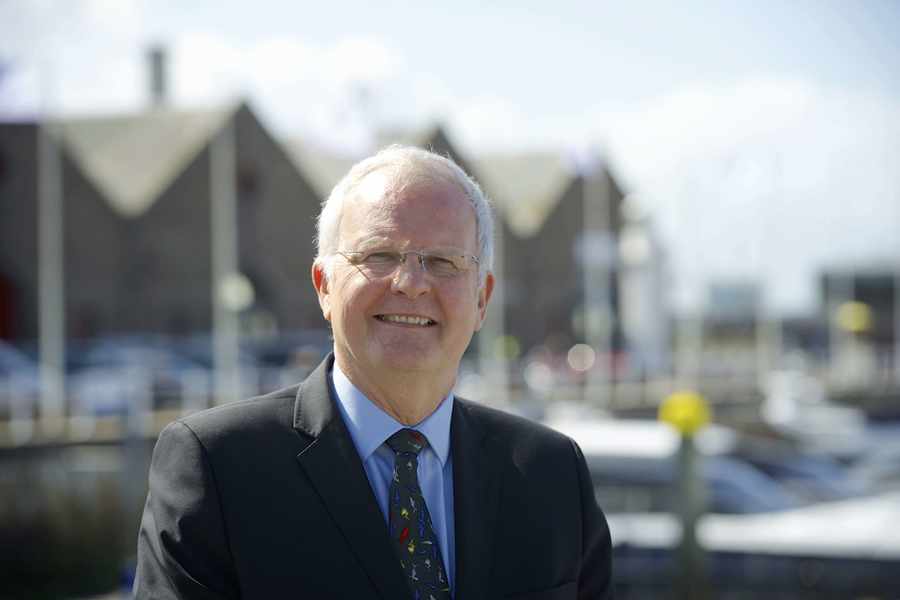
KEITH Beecham is on a voyage of discovery.
He has recently arrived to lead a new tourism organisation – Visit Jersey – for which he is still recruiting staff. He is still learning how to pronounce Jersey names and places and, to cap it all, he arrived on the Condor Liberation when it struck a harbour fender in Guernsey on its second commercial crossing and had to spend an extra day in our sister island.
‘Things happen,’ he says philosophically. ‘I spent 25 years at Visit Britain and was marketing director during the foot-and-mouth crisis and a number of terrorism instances in London and the UK. Stuff happens, and organisations need to be adaptable.’
So what has led him to leave the big smoke of London’s fair city for an island lashed by wave, wind, and a loss of fortune in it’s tourism industry?
‘I’m typical of a vast swathe of British people who have heard of the Channel Islands, have a very superficial view of Jersey – and then go on to think about other things,’ he said. ‘When I saw this opportunity, I had to do a bit of research, because my understanding was pretty thin.’
It’s fair to say that he knows how to find his way around a place. Brought up in Plymouth, his first job after a marketing degree was in advertising, and Butlins was his first account.
‘That was my first introduction to tourism. But it was the 1970s and all the successes seemed to be coming from Japan – the cars, the watches, the electronics. So I decided to go to Japan.
‘I spent a couple of years teaching Japanese businessmen how to engage with English businessmen – the cultural aspects of how to operate in a meeting, for example. By helping Japanese people how to understand our culture, I understood their business culture.’
It was in Japan, too, that he met his wife, Fumiko.
An MBA at Bradford followed – ‘curry capital of the world, a happy but hard-working time’ – and then a stint at an American investment bank in London, Manufacturers Hanover, carrying out some ‘sexy financial engineering’ in currency and interest rate swaps.
Then he saw an advert posted by the British Tourist Authority (later to become Visit Britain) to manage their Japanese operation.
‘It was a completely different industry, but it sounded a wonderful opportunity. So we went back to Japan – our two boys, Joseph and Alexander, were born in Japan – to help the Japanese understand why Britain is a great place for them to come.’
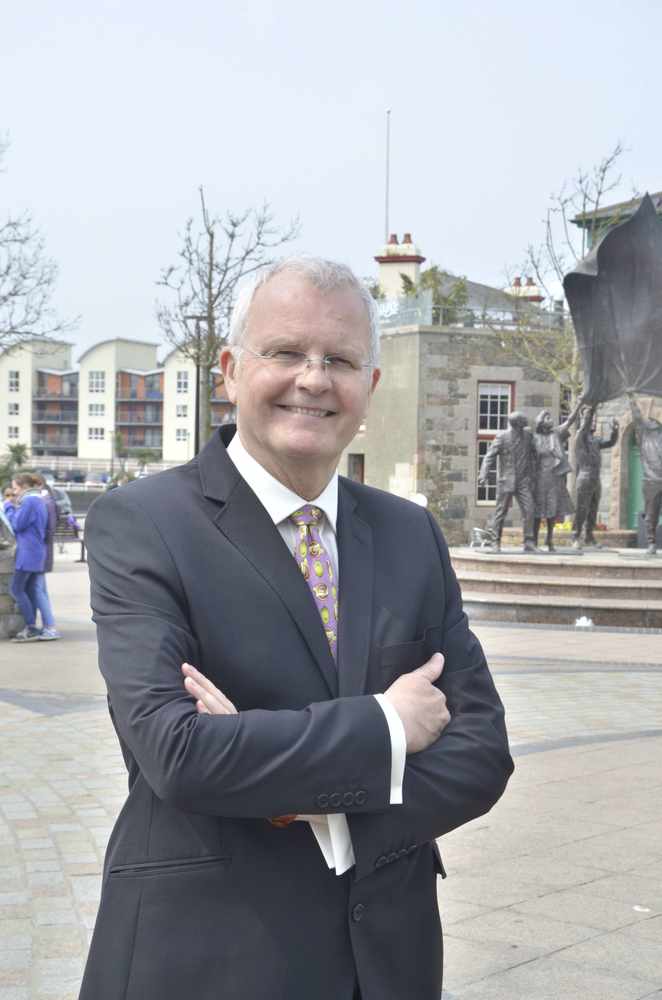
At the time there was no strong image of what Britain had to offer, apart from a few stereotypes – taking tea, the Queen, things taught at school.
‘We had to find a way to engage, and we came up with Peter Rabbit. I know, people smile, but in purely commercial terms this was very important,’ he explained, ‘and in a sense, this describes my approach.
‘I’m not saying we’re going to have a Peter Rabbit campaign in Jersey, but it’s about taking a partnership approach, getting the relevant parties to agree to support each other, for the benefit of all. Japanese schoolchildren are taught English through the Beatrix Potter stories and a lot of the illustrations are taken from real places. We worked with the National Trust, the Cumbria Tourist Board, with Japan Airlines, with NHK (the BBC equivalent in Japan) to introduce Britain through the eyes of Peter Rabbit to a particular market sector – office ladies (we are going back 20 years or more).
‘It took three years, a lot of debate, finding the funds. It was not an overnight success, but about long-term growth.’
In due course he took on a wider role for the whole of Asia, and then in 2000 returned to London to become marketing director of Visit Britain, which was when the foot-and-mouth challenge was in full force. Not only that, but it was a time of change, from a heavy print-based programme to new website channels.
‘We were the first to call ourselves ”Visit” anything,’ he recalled.
Three years later, he was on the move again, this time to Hong Kong to establish a new region encompassing Asia, the Middle East and Africa.
‘It was clear that there was a lot of opportunity in the Asia Pacific generally and they needed a safe pair of hands. Over the five to six years I opened offices all over the place – China, Africa, India. It was wonderful.’
Then came the recession.
‘I came back to London as global head, with world-wide responsibility, and our budgets were cut by 50%. All of the offices I had opened – I now had to close a lot of them. We moved from 36 offices globally to 21. I had the very sad but necessary role of reshaping that network.
‘We focused on the markets that were either high volume, such as France and the USA, or high value – the Middle East is not massive in numbers, but the average spend is very high.’
In Jersey, too, there is a high volume ‘legacy market’, he says.
‘British, more elderly, very loyal, repeat customers, but not growing at the moment. So how can we handle that, where can we look for growth and additional income? It’s a similar principle.’
From running Visit Britain’s global operation, he became interim chief executive officer for the last five months he was with the organisation. But having applied for the top job and not been successful, it was time to look for a new adventure.
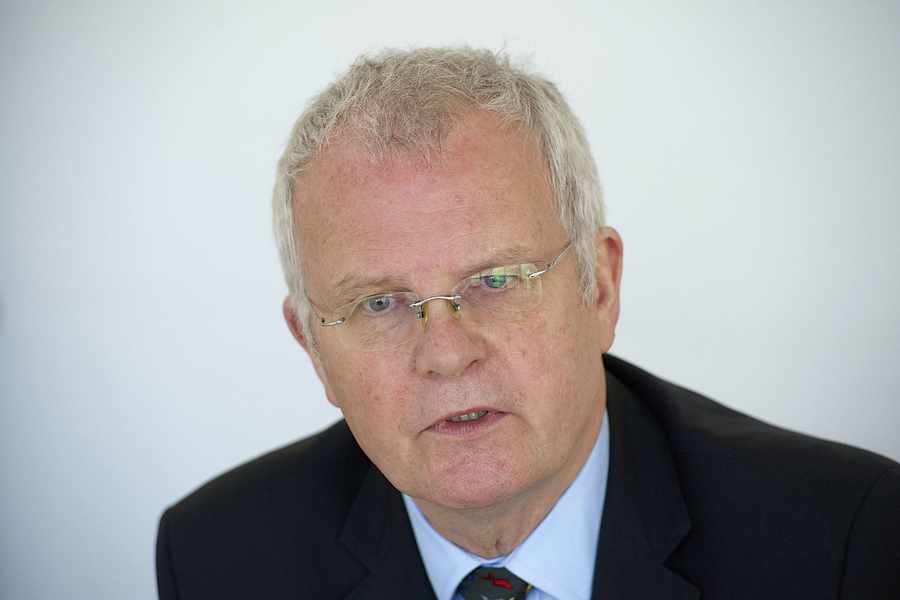
The Visit Jersey that he is now a part of is not dissimilar to Visit Britain, he observes, in the sense that it is allocated a government grant (around £5.5 million this year) and has targets that have to be agreed with a shadow board.
‘What I will be doing is putting ideas together for 2016, but my main work at the moment is to continue to recruit staff. We’re lucky that six (former Jersey Tourism) colleagues have moved across, others are with us on secondment from the Economic Development Department until the end of the month, and we’re probably just about to fulfil all the numbers.’
What he has taken on, effectively, is a ‘start-up’ rather than a ready-made business.
‘Processes need putting in place, bank accounts need organising, performance approaches and relationship management need putting in place. We have a legacy of what happened before, but we are moving into a more commercial environment, although still answerable to the government.’
A large part of his new strategy is likely to focus on using digital means to go where the customers go. ‘Take me – I like Top Gear. So if I want to influence me to come and see the vintage cars and the rallies, I would want to place my content on the Top Gear website.’
For New Yorkers, read National Geographic; for stressed-out Londoners, apply Time Out. In the meantime, he’s already been on national radio promoting the Jersey Royal and is beginning to understand what makes Jersey tick.
‘Rugby – I enjoyed seeing the Cornish Pirates stuffed a few weeks ago, and I’m going to enjoy cycling to work every day – we’ve already discovered the Railway Walk by just going off and seeing what we find.
‘On Sunday we drove up to Plémont and it was like a magical kingdom – misty, tunnels of trees going down to the beach, beautiful by anybody’s standards. Then the mist lifted, the sun came out – it was a really jaw-dropping experience, just awesome.
‘I guess there are these gems everywhere in Jersey, and what we need to do is to narrate the story, so that we can inspire people from the UK and further afield to visit this wonderful place.’




